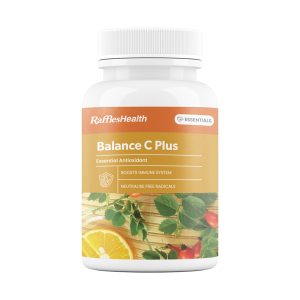Maximising the Benefits of Supplements: The Dos and Don’ts

When it comes to improving your health, adding supplements to your diet can be a game-changer. However, they should not replace a balanced diet, which remains your primary source of nutrients. Supplements complement your diet by providing essential nutrients your body may lack. Whether you are new to supplements or a regular user, discover how to maximise their benefits with these six key dos and don’ts.
The Role of Supplements
Supplements come in various forms, each offering specific health benefits. Here are a few types of supplements and their common uses:
| Supplement Type | Common Benefits |
|---|---|
| Vitamins | Vitamin C: Immune support, skin health Vitamin D: Bone health, immune support B Vitamins: Energy levels, red blood cell formation |
| Minerals | Calcium: Bone health, muscle function Iron: Energy levels, red blood cell production Magnesium: Muscle and nerve function |
| Probiotics | Multi-Strain Probiotic Blend: Digestive support, immune health |
| Fatty acids | Omega-3: Heart health, brain function Gamma-Linolenic Acid (GLA): Skin health, hormonal balance |
| Herbal | Turmeric: Anti-inflammatory, joint health Ginkgo: Cognitive function, memory support |
The Dos
1. Assess Your Nutritional Needs
Before incorporating supplements into your diet, it is important to understand what your body truly needs. Start by consulting with a doctor or a dietitian to identify any nutritional gap or health concerns you may have.
Supplements can be beneficial for individuals with dietary restrictions or health conditions that affect nutrient absorption. For example, a calcium supplement might be useful for someone with osteoporosis or has low dairy intake. Similarly, those with high levels of physical activity or stress might require additional supplements to meet their increased nutritional demands.
2. Choose the Right Supplements
When choosing supplements, read the labels carefully to understand the ingredients, dosages, and possible interactions with other medications or supplements you might be taking. Individuals with dietary restrictions or allergies should pay extra attention to the ingredients to avoid accidental consumption.
Additionally, opt for supplements from reputable brands that adhere to strict manufacturing practices to ensure quality and safety.

3. Focus on Timing and Diet
The timing of supplement intake matters. Some supplements are better absorbed with food, while others should be taken on an empty stomach. For example, fat-soluble vitamins such as A, D, E, and K are best taken with meals that contain dietary fat, whereas calcium supplements are typically more effective when taken after a meal.
The effectiveness of supplements also depends on your overall diet. Ensure your meals include nutrient-dense foods such as lean proteins, whole grains, fruits, and vegetables. With a solid nutritional foundation, supplements can provide the additional boost you need.

The Don'ts
1. Don’t Rely on Supplements Alone
No single supplement can provide all the nutrients you need. Instead, prioritise a well-balanced diet to cover most of your nutritional requirements. Supplements should complement, not replace, medical treatment or advice from your doctor.
2. Don’t Overlap or Overdose on Supplements
Be cautious about taking multiple supplements containing the same nutrients, which can lead to excessive doses and potential health risks. Consult a healthcare professional if you have any concerns.
3. Don’t Ignore Potential Side Effects
Some supplements can interact with medications and cause adverse effects. Always inform your doctor of any supplements you are taking or planning to take, especially if you have pre-existing health conditions or are on medication. Monitor your health regularly for any unusual symptoms.
Supplements can be a valuable addition to your wellness routine when used appropriately. However, they should not replace regular health screenings, which provide a comprehensive view of your health, facilitate early detection of issues, and help evaluate the effectiveness of your supplement regimen. Combined with a healthy diet, these strategies enable you to take a proactive approach to your health and well-being!




















